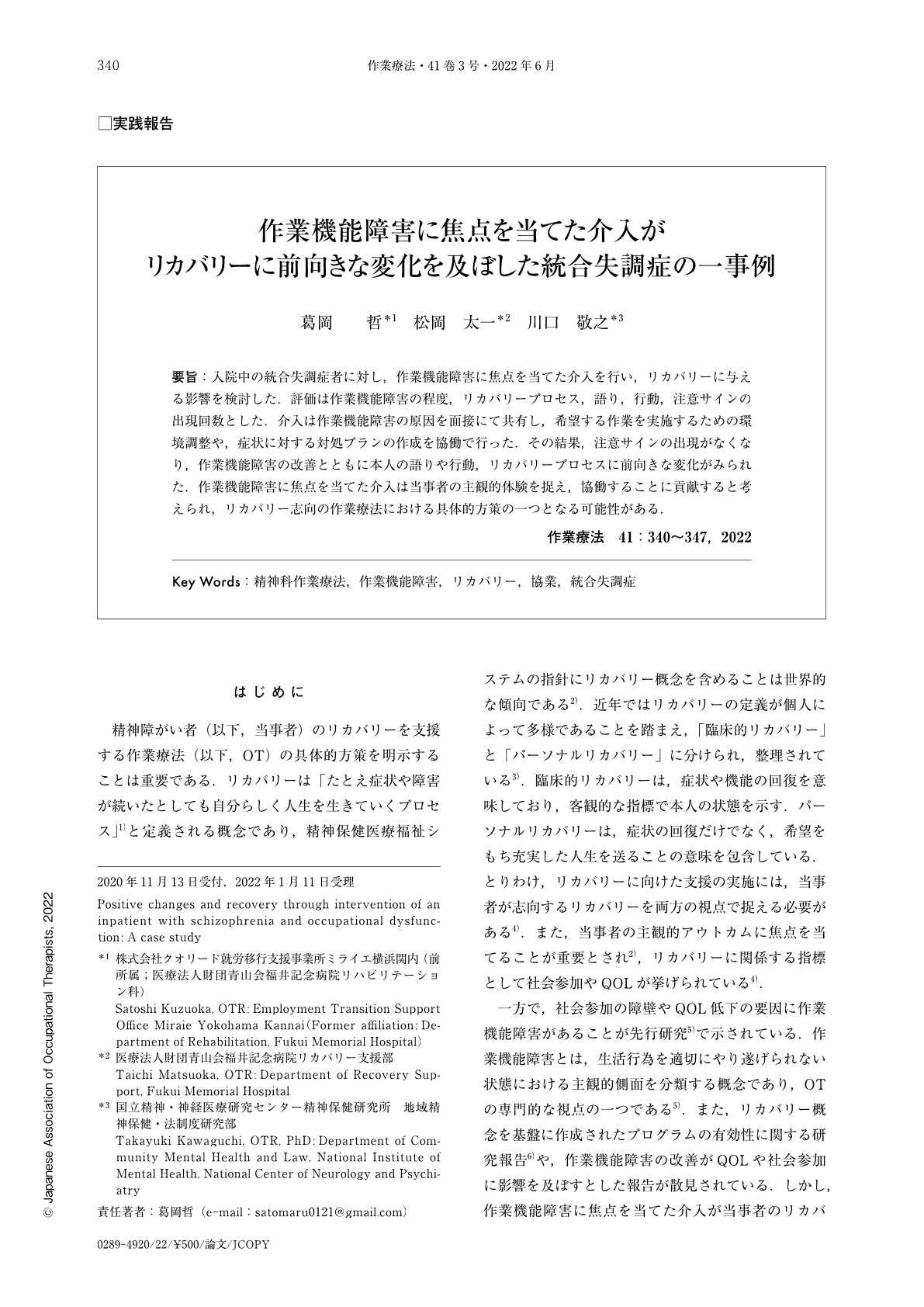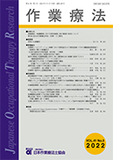Japanese
English
- 販売していません
- Abstract 文献概要
- 1ページ目 Look Inside
- 参考文献 Reference
- サイト内被引用 Cited by
要旨:入院中の統合失調症者に対し,作業機能障害に焦点を当てた介入を行い,リカバリーに与える影響を検討した.評価は作業機能障害の程度,リカバリープロセス,語り,行動,注意サインの出現回数とした.介入は作業機能障害の原因を面接にて共有し,希望する作業を実施するための環境調整や,症状に対する対処プランの作成を協働で行った.その結果,注意サインの出現がなくなり,作業機能障害の改善とともに本人の語りや行動,リカバリープロセスに前向きな変化がみられた.作業機能障害に焦点を当てた介入は当事者の主観的体験を捉え,協働することに貢献すると考えられ,リカバリー志向の作業療法における具体的方策の一つとなる可能性がある.
The objective of this study was to examine the effect of an intervention focusing on occupational dysfunction in the recovery of an inpatient with schizophrenia (the client). The assessment was based on the degree of occupational dysfunction, the recovery process, the client's narratives and behaviors, and the number of occurrences of early warning signs. The interventions included sharing the causes of the occupational dysfunction through interviews, adjusting the environment in which the desired occupations were performed, and collaborating to make a coping plan for the client's symptoms. As a result, the early warning signs and occupational dysfunction improved, and there were positive changes in the client's narratives and behaviors and recovery process. Thus, this intervention focusing on occupational dysfunction contributed to understanding the client's subjective experiences and collaborating with the client and could be one specific strategy in recovery-oriented occupational therapy.

Copyright © 2022, Japanese Association of Occupational Therapists. All rights reserved.


